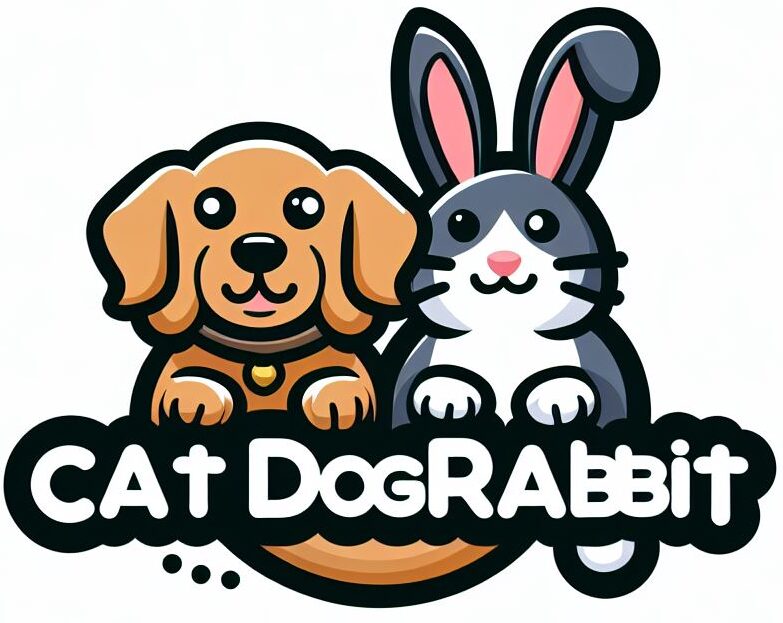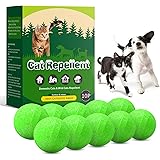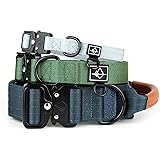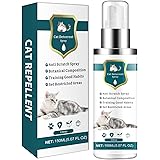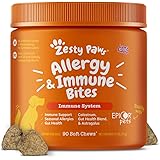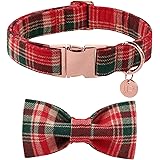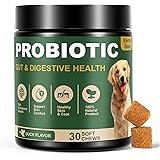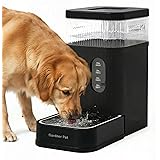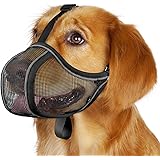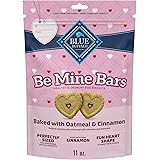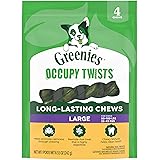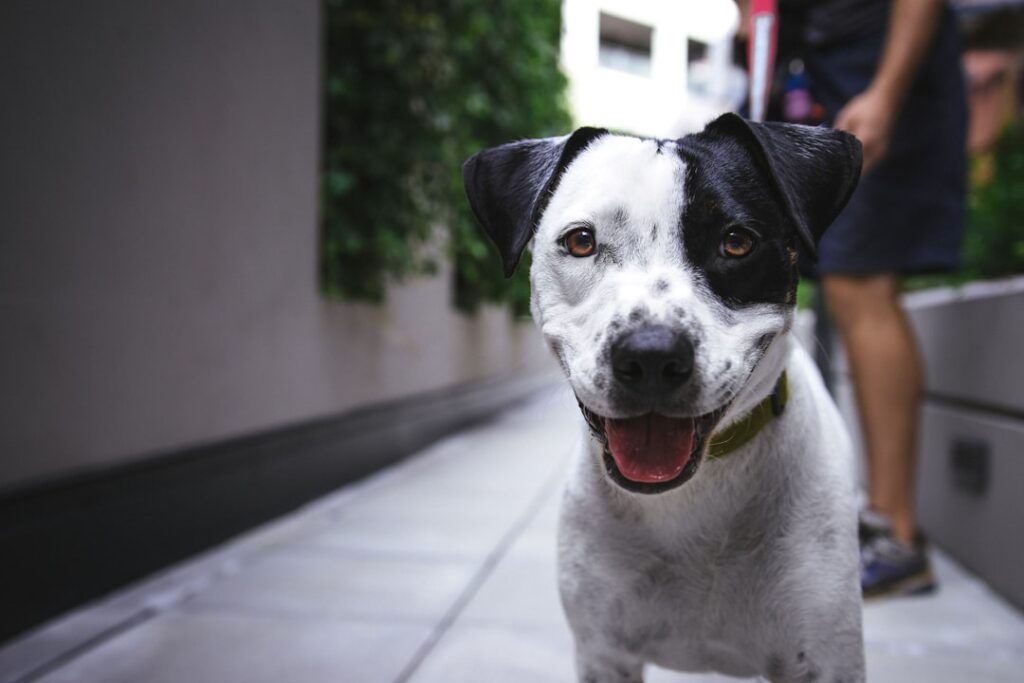
Cat Repellent Outdoor to Keep Cats Away, Natural Peppermint Oil Cat Deterrent Outdoor and Indoor, Keep Cats Out of Yard Permanently, Protect Your Yard and Furniture (Green,10 Count (Pack of 1))
$17.99 (as of 02/08/2026 14:07 GMT +00:00 - More infoProduct prices and availability are accurate as of the date/time indicated and are subject to change. Any price and availability information displayed on [relevant Amazon Site(s), as applicable] at the time of purchase will apply to the purchase of this product.)gogobunny 3X Stronger Waterproof Pet Blanket, Scratch Proof Furniture Protector for Dogs Cats, Reversible Cover 30x70 Inch, Dark Grey/Light Grey
$7.98 (as of 02/08/2026 14:12 GMT +00:00 - More infoProduct prices and availability are accurate as of the date/time indicated and are subject to change. Any price and availability information displayed on [relevant Amazon Site(s), as applicable] at the time of purchase will apply to the purchase of this product.)Made to ROAM Premium Dog Collar - Adjustable Heavy Duty Nylon Collar with Quick-Release Metal Buckle (Colorado Nightsky, Classic Size 3)
$20.99 (as of 02/08/2026 14:12 GMT +00:00 - More infoProduct prices and availability are accurate as of the date/time indicated and are subject to change. Any price and availability information displayed on [relevant Amazon Site(s), as applicable] at the time of purchase will apply to the purchase of this product.)LONPAL Advanced Cat Deterrent Spray
$18.99 (as of 02/08/2026 14:07 GMT +00:00 - More infoProduct prices and availability are accurate as of the date/time indicated and are subject to change. Any price and availability information displayed on [relevant Amazon Site(s), as applicable] at the time of purchase will apply to the purchase of this product.)Zesty Paws Dog Allergy Relief Chews, Dog Probiotics for Itchy Skin and Ears, Lamb, 90ct
$32.97 (as of 02/08/2026 14:07 GMT +00:00 - More infoProduct prices and availability are accurate as of the date/time indicated and are subject to change. Any price and availability information displayed on [relevant Amazon Site(s), as applicable] at the time of purchase will apply to the purchase of this product.)Hoki Found -Waterproof Pet Feeding Mats with High Lips - Multiple Size and Colors for Dogs, Cats & Others-G
$12.99 (as of 02/08/2026 14:12 GMT +00:00 - More infoProduct prices and availability are accurate as of the date/time indicated and are subject to change. Any price and availability information displayed on [relevant Amazon Site(s), as applicable] at the time of purchase will apply to the purchase of this product.)Renu Dog Brush - 3-in-1 Self-Cleaning Steamy Pet Brush for Dogs & Cats, Fresh Fur Shower Brush That Removes Loose Hair, Reduces Shedding, Grooming Tool for Long & Short Hair, Wet or Dry Use (White)
$15.99 (as of 02/08/2026 14:07 GMT +00:00 - More infoProduct prices and availability are accurate as of the date/time indicated and are subject to change. Any price and availability information displayed on [relevant Amazon Site(s), as applicable] at the time of purchase will apply to the purchase of this product.)UP URARA PUP Christmas Plaid Dog Collar with Bow Tie– Adjustable Red & Green Checkered Dog Collar for Small Medium Large Dogs, Soft Xmas Plaid Puppy Collars with Quick Release Buckle XS
$14.99 (as of 02/08/2026 14:12 GMT +00:00 - More infoProduct prices and availability are accurate as of the date/time indicated and are subject to change. Any price and availability information displayed on [relevant Amazon Site(s), as applicable] at the time of purchase will apply to the purchase of this product.)Probiotics for Dogs - Dog Probiotics for Yeast, Itchy Skin and Itchy Ears, Digestive Health, Diarrhea Relief, Gut & Immune Support - with 7 Enzymes, 3 Prebiotics & Omega-3 (Duck 30ct)
$9.99 (as of 02/08/2026 14:07 GMT +00:00 - More infoProduct prices and availability are accurate as of the date/time indicated and are subject to change. Any price and availability information displayed on [relevant Amazon Site(s), as applicable] at the time of purchase will apply to the purchase of this product.)Green poop in dogs can be a cause for concern for many pet owners. While it may seem like a trivial issue, understanding the causes and treatments of green poop is important for maintaining your dog’s overall health and well-being. In this article, we will explore the various factors that can contribute to green poop in dogs, including dietary factors, bacterial infections, parasites, medications, and underlying health conditions. By understanding these causes, you can take the necessary steps to address the issue and ensure your dog’s digestive system is functioning properly.
Key Takeaways
- Green poop in dogs can be caused by a variety of factors, including dietary changes, bacterial infections, parasites, medications, and health conditions.
- Dietary factors that can contribute to green poop in dogs include consuming too much grass or other plant material, eating a diet high in fat, or consuming food with artificial colors or dyes.
- Bacterial infections, such as salmonella or E. coli, can also cause green poop in dogs, along with other symptoms like vomiting and diarrhea.
- Parasites like giardia or worms can also lead to green poop in dogs, and may require specific treatments to eliminate.
- Medications like antibiotics or iron supplements can cause green poop in dogs, as can certain health conditions like liver disease or pancreatitis. Diagnosing the underlying cause is key to effective treatment and prevention.
Understanding Green Poop in Dogs
Green poop in dogs refers to feces that have a greenish hue instead of the normal brown color. The color of a dog’s poop can vary depending on several factors, including their diet, hydration levels, and overall health. While occasional variations in color are usually not a cause for concern, persistent green poop may indicate an underlying issue that needs to be addressed.
In healthy dogs, normal poop color can range from light to dark brown. This is due to the presence of bile, a substance produced by the liver that helps with digestion. Bile is typically yellowish-green in color and is responsible for breaking down fats in the diet. As food moves through the digestive system, it undergoes various chemical changes that result in the brown color of feces.
When it comes to green poop in dogs, it is important to pay attention to any changes in color that persist for more than a day or two. While it may not always indicate a serious problem, it is worth investigating further to rule out any potential underlying issues.
Common Causes of Green Poop in Dogs
There are several common causes of green poop in dogs. Understanding these causes can help you identify the underlying issue and take appropriate action.
1. Rapid digestion: If food passes through the digestive system too quickly, it may not have enough time to undergo the normal chemical changes that result in brown poop. This can lead to green poop.
2. Diet changes: Abrupt changes in diet can disrupt the normal digestive process and result in green poop. Introducing new foods or switching to a different brand of dog food can cause temporary changes in poop color.
3. Stress and anxiety: Dogs that are stressed or anxious may experience changes in their digestive system, including green poop. This can be caused by various factors, such as a change in environment, separation anxiety, or a traumatic event.
4. Ingestion of grass or other plants: Dogs are known to eat grass and other plants, which can sometimes lead to green poop. The chlorophyll present in these plants can give the feces a greenish hue.
Dietary Factors that Contribute to Green Poop in Dogs
| Dietary Factors | Contribution to Green Poop in Dogs |
|---|---|
| High Fiber Diet | Increases the speed of digestion, leading to green poop |
| Excessive Vegetables | Can cause green poop due to chlorophyll content |
| Artificial Food Coloring | May cause green poop due to the dye used |
| Iron Supplements | Can cause green poop due to the iron content |
| Antibiotics | May disrupt the gut flora and cause green poop |
The diet plays a significant role in the color and consistency of a dog’s poop. Certain dietary factors can contribute to green poop in dogs.
1. High fiber diet: A diet that is high in fiber can speed up the digestive process and result in green poop. Fiber is not fully digested by dogs, so it passes through the digestive system relatively quickly.
2. Food coloring: Some commercial dog foods contain artificial food coloring, which can give the feces a greenish tint. While this is generally harmless, it is best to avoid foods with artificial additives.
3. Artificial preservatives: Similar to food coloring, artificial preservatives in dog food can also affect the color of the poop. These preservatives can disrupt the normal digestive process and lead to green poop.
4. Overfeeding: Feeding your dog too much food can overwhelm their digestive system and result in green poop. It is important to follow the recommended feeding guidelines for your dog’s breed, size, and activity level.
Bacterial Infections and Green Poop in Dogs
Bacterial infections can also cause green poop in dogs. Some common bacterial infections that can affect the digestive system include Salmonella, E. coli, and Campylobacter.
1. Salmonella: Salmonella is a type of bacteria that can cause gastrointestinal issues in dogs. Symptoms may include diarrhea, vomiting, and green poop.
2. E. coli: E. coli is another type of bacteria that can cause digestive problems in dogs. In addition to green poop, symptoms may include abdominal pain, fever, and loss of appetite.
3. Campylobacter: Campylobacter is a bacterial infection that can be transmitted through contaminated food or water. It can cause diarrhea, abdominal pain, and green poop in dogs.
Symptoms of bacterial infections may vary depending on the severity of the infection and the dog’s overall health. If you suspect your dog has a bacterial infection, it is important to seek veterinary care for proper diagnosis and treatment.
Parasites and Green Poop in Dogs

Parasites can also contribute to green poop in dogs. Some common parasites that can affect the digestive system include Giardia, roundworms, and hookworms.
1. Giardia: Giardia is a microscopic parasite that can cause diarrhea and green poop in dogs. It is commonly transmitted through contaminated water sources.
2. Roundworms: Roundworms are intestinal parasites that can infect dogs. In addition to green poop, symptoms may include vomiting, weight loss, and a pot-bellied appearance.
3. Hookworms: Hookworms are another type of intestinal parasite that can cause digestive issues in dogs. Symptoms may include diarrhea, anemia, and poor growth.
Symptoms of parasitic infections can vary depending on the type of parasite and the dog’s overall health. If you suspect your dog has a parasitic infection, it is important to seek veterinary care for proper diagnosis and treatment.
Medications and Green Poop in Dogs
Certain medications can also cause green poop in dogs. This is often a side effect of the medication and is usually temporary.
1. Antibiotics: Some antibiotics can disrupt the normal balance of bacteria in the digestive system, leading to changes in poop color. This is usually temporary and resolves once the course of antibiotics is completed.
2. Anti-inflammatory drugs: Certain anti-inflammatory drugs, such as nonsteroidal anti-inflammatory drugs (NSAIDs), can cause gastrointestinal issues in dogs. This can include changes in poop color.
3. Chemotherapy drugs: Dogs undergoing chemotherapy may experience changes in their digestive system, including green poop. This is a common side effect of chemotherapy treatment.
It is important to follow your veterinarian’s instructions when administering medications to your dog. If you notice any changes in poop color or other concerning symptoms, it is important to consult with your vet.
Health Conditions and Green Poop in Dogs
Underlying health conditions can also contribute to green poop in dogs. Some common health conditions that can affect the digestive system include inflammatory bowel disease, pancreatitis, and liver disease.
1. Inflammatory bowel disease: Inflammatory bowel disease (IBD) is a chronic condition that causes inflammation in the digestive tract. Symptoms may include diarrhea, vomiting, and green poop.
2. Pancreatitis: Pancreatitis is inflammation of the pancreas, which can affect the digestive system. In addition to green poop, symptoms may include abdominal pain, vomiting, and loss of appetite.
3. Liver disease: Liver disease can affect the digestive system and lead to changes in poop color. Other symptoms may include jaundice, weight loss, and lethargy.
Symptoms of these health conditions may vary depending on the severity of the condition and the dog’s overall health. If you suspect your dog has an underlying health condition, it is important to seek veterinary care for proper diagnosis and treatment.
How to Diagnose Green Poop in Dogs
If you notice persistent green poop in your dog, it is important to seek veterinary care for proper diagnosis and treatment. Your veterinarian will perform a thorough examination and may recommend additional tests to determine the underlying cause.
1. Physical examination: Your veterinarian will examine your dog’s overall health and look for any signs of illness or abnormalities.
2. Fecal analysis: A fecal analysis involves examining a sample of your dog’s poop under a microscope to check for the presence of parasites, bacteria, or other abnormalities.
3. Blood tests: Blood tests can help identify any underlying health conditions that may be contributing to the green poop.
4. Imaging tests: In some cases, imaging tests such as X-rays or ultrasounds may be recommended to further evaluate the digestive system.
Based on the results of these tests, your veterinarian will be able to determine the underlying cause of the green poop and recommend appropriate treatment options.
Treating Green Poop in Dogs: Solutions and Remedies
The treatment for green poop in dogs will depend on the underlying cause. In some cases, simple dietary changes may be enough to resolve the issue. In other cases, medications or other interventions may be necessary.
1. Dietary changes: If the green poop is caused by dietary factors, such as a high fiber diet or food coloring, switching to a different brand of dog food or adjusting the diet may help resolve the issue.
2. Medications: If the green poop is caused by a bacterial infection or parasite, your veterinarian may prescribe medications to treat the underlying infection.
3. Probiotics: Probiotics are beneficial bacteria that can help restore the balance of bacteria in the digestive system. They may be recommended as part of the treatment plan for green poop.
4. Home remedies: In some cases, home remedies such as pumpkin puree or a bland diet may help soothe the digestive system and resolve the issue. However, it is important to consult with your veterinarian before trying any home remedies.
It is important to follow your veterinarian’s recommendations for treatment and monitor your dog’s poop color and consistency. If the green poop persists or is accompanied by other concerning symptoms, it is important to seek veterinary care for further evaluation.
Preventing Green Poop in Dogs: Tips and Recommendations
While it may not always be possible to prevent green poop in dogs, there are some steps you can take to minimize the risk.
1. Consistent diet: Stick to a consistent diet for your dog and avoid making abrupt changes. If you need to switch their food, do so gradually over a period of several days.
2. Regular exercise: Regular exercise can help keep your dog’s digestive system functioning properly. Make sure your dog gets plenty of physical activity to promote healthy digestion.
3. Avoiding stress: Minimize stress and anxiety in your dog’s life as much as possible. Provide a calm and stable environment and address any underlying behavioral issues that may be causing stress.
4. Regular vet check-ups: Schedule regular check-ups with your veterinarian to monitor your dog’s overall health and catch any potential issues early on.
By following these tips and recommendations, you can help maintain your dog’s digestive health and reduce the risk of green poop.
In conclusion, green poop in dogs can be a cause for concern for many pet owners. While it may not always indicate a serious problem, understanding the causes and treatments of green poop is important for maintaining your dog’s overall health and well-being. By being aware of the various factors that can contribute to green poop, such as dietary factors, bacterial infections, parasites, medications, and underlying health conditions, you can take the necessary steps to address the issue and ensure your dog’s digestive system is functioning properly. If you notice persistent green poop or other concerning symptoms, it is important to seek veterinary care for proper diagnosis and treatment. Your veterinarian will be able to determine the underlying cause and recommend appropriate treatment options.
FAQs
What causes green poop in dogs?
Green poop in dogs can be caused by a variety of factors, including diet, medication, and health issues. Some common causes include consuming too much grass or other vegetation, ingesting certain types of food or treats, and bacterial infections.
Is green poop in dogs a cause for concern?
Green poop in dogs is not always a cause for concern, but it can be an indication of an underlying health issue. If your dog is experiencing other symptoms such as vomiting, diarrhea, or lethargy, it is important to consult with a veterinarian.
How can I prevent my dog from having green poop?
To prevent green poop in dogs, it is important to ensure that they are eating a balanced and healthy diet. Avoid giving your dog table scraps or treats that are high in fat or sugar. Additionally, make sure your dog has access to clean water at all times and is getting enough exercise.
What should I do if my dog has green poop?
If your dog has green poop, monitor their behavior and other symptoms. If they are otherwise healthy and not experiencing any other issues, it may be a temporary condition that resolves on its own. However, if your dog is experiencing other symptoms or the green poop persists, it is important to consult with a veterinarian.
Can green poop in dogs be a sign of a serious health issue?
In some cases, green poop in dogs can be a sign of a serious health issue such as a bacterial infection or gastrointestinal disorder. If your dog is experiencing other symptoms or the green poop persists, it is important to consult with a veterinarian to rule out any underlying health issues.
